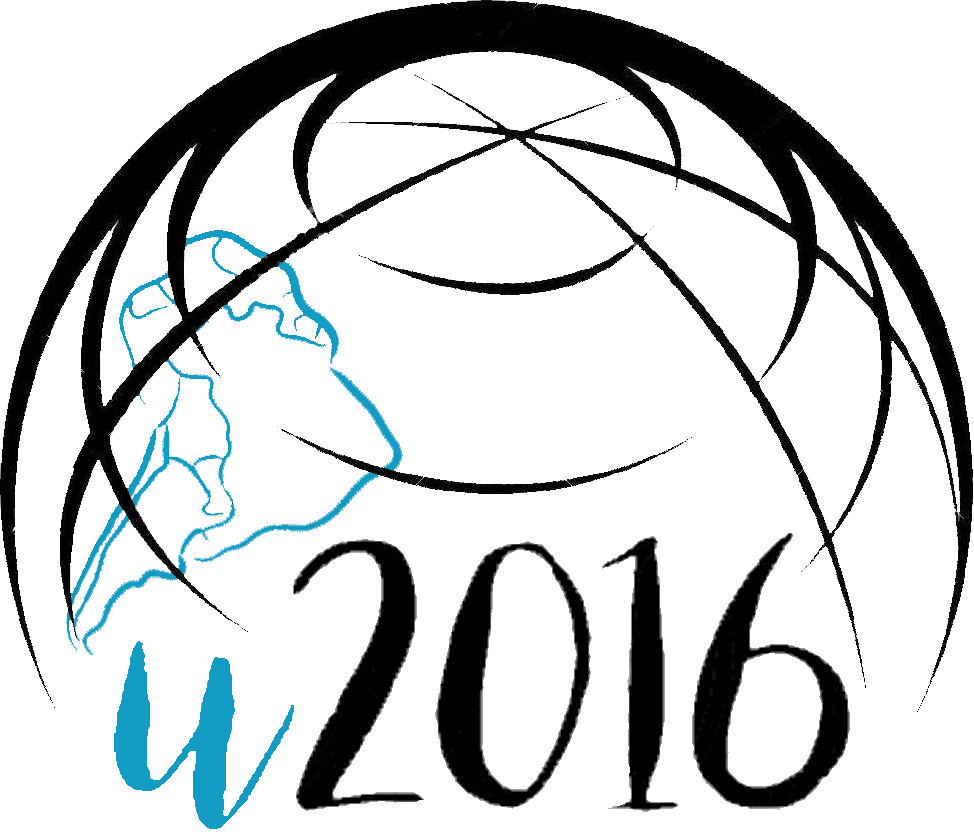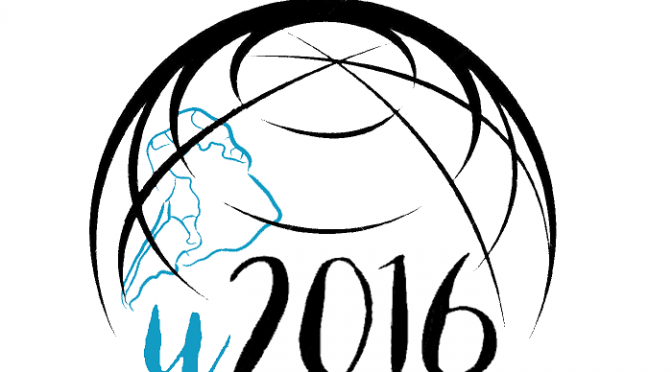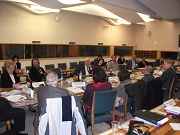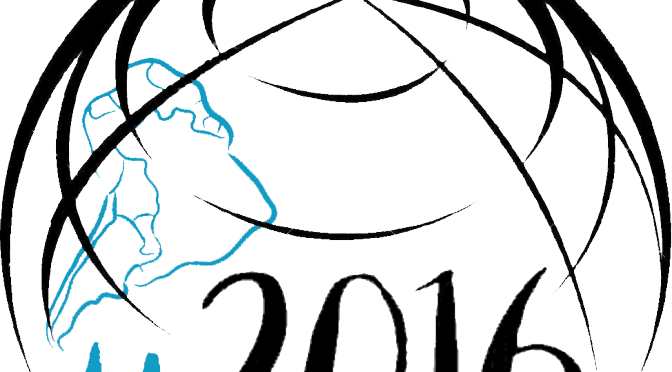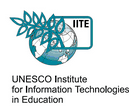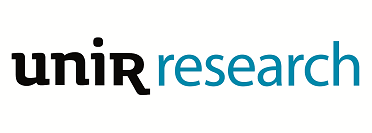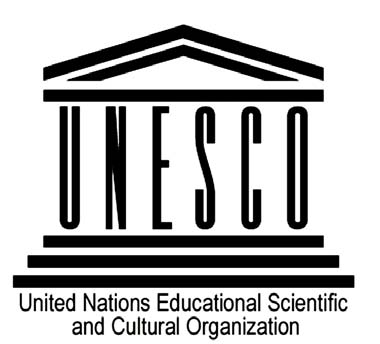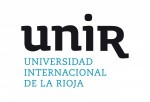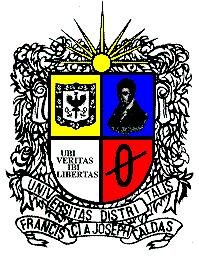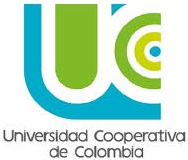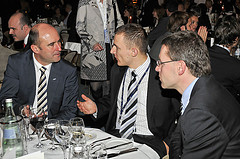You can find every learning resource of the congress along this page, from the scientific paper, to the Powerpoint presentation, through the session recording. The distribution follows the same flow that in the live session: Opening, Session 1 (Technology & Learning), Session 2 (Educational Methodology), Session 3 (Policiy Making & Digital Society) and Closing, along with both Keynotes by Prof. Dr. Khoroshilov and Ramírez.
Opening:
Daniel Burgos, General & Scientific Chair (Universidad Internacional de la Rioja / UNESCO)
| Prologue | |
| Editor´s note | |
Keynote speaker:
Alexander Khoroshilov. Head a.i of IITE UNESCO (Moscow) & President of Honorary Commitee of this congress.
“Reaching Targets of Education-2030. UNESCO Approach and IITE Activities”
| Paper | — | Presentation | |
Video | |
Alan Tait, Emeritus Professor of Distance Education and Development, Open University UK, Executive Comittee ICDE “From formal to informal learning: the challenge of the Sustainable Development Goals”
| Paper | —- | Presentation | |
Video | |
Guilherme Canela (UNESCO Uruguay) “Desafíos para las políticas públicas de TICs y Educación en América Latina”
| Paper | —- | Presentation | —— | Video | |
Tatiana Valencia and Sollany Ochoa (OREALC / UNESCO, Colombia) “Marco de Competencias y Estándares TIC desde la Dimensión Pedagógica”
| Paper | —- | Presentation | |
Video | |
Session 1: Technology & Learning
Moderator: Carlos Montenegro, Universidad Distrital
Andrés Felipe Rojas Hernández and Nancy Yaneth Gelvez García. Distributed processing using cosine similarity for mapping Big Data in Hadoop
| Paper | |
Presentation | |
Video | |
Abel Suing, Verónica González, Kruzkaya Ordóñez and Patricio Barrazueta. Redesign degree in communication. Case study distance mode. UTPL in Ecuador
| Paper | |
Presentation | |
Video | |
Sandra Merchán Rubiano, Guiovanna Sabogal Alfaro, Leonardo Aguirre León, Daniel Tijo Garavito and Sebastián Valencia Correa. Towards and Integration of B-leaning and Significant Learning: A case study at the Universidad El Bosque
| Paper | |
Presentation | |
Video | |
Sandra Merchán Rubiano and Jorge Alberto Duarte García. Analysis of Data Mining Techniques for Constructing a Predictive Model for Academic Performance
| Paper | |
Presentation | |
Video | |
Juan Isacio Castillo Tello, J. Javier Rainer and Lara Orcos. Virtual forums as a learning method in Industrial Engineering Organization
| Paper | |
Presentation | |
Video | |
Fredys A. Simanca H. y Alexandra Abuchar Porras. Application of a Learning Analytics tools to a Moodle virtual classroom
| Paper | |
Presentation | |
Video | |
Session 2: Educational Methodology
Moderator: Adriana Maritza Montejo. Universidad Cooperativa
Eniel Do Espirito Santo, Ariston De Lima Cardoso, Karina Zanoti Fonseca, Adilson Gomes Dos Santos, Leandro Sodre Barreto y Rafael Moura Mascarenhas. Open Educational Resources: initiatives towards culture implementation at a public university.
| Paper | |
Presentation | |
Video | |
Victor Eduardo Melgarejo and Ariel Rodolfo Rodríguez Hernández. Integral schema for Monitoring and Evaluation of ICT Inclusion, Use and Appropriation in Education
| Paper | |
Presentation | |
Video | |
Fátima Llamas Salguero, Pilar Martín Lobo, Marta Gil Najera and Silvia Pradas Montilla. Study of the attitude os students towards new technological contexts and neuroscience progress
| Paper | |
Presentation | |
Video | |
José Ignacio Palacios Osma, Carlos Enrique Montenegro Marín, Giovanni Piñeros Mora and José Andrés Gamboa Suárez. Learning platform assessment model LMS
| Paper | |
Presentation | |
Video | |
Blanca Tejero and Virginia García Coll. Physical Education in the Age of Digital Technology
| Paper | —– | Presentation | |
Video | |
Jaraby Reyna de Thomas, Verónica López-Fernández, Fátima Llamas-Salguero, Pilar Martín Lobo, and Silvia Pradas. Participation and knowledge through Plickers in high school students and its relationship to creativity
| Paper | |
Presentation | |
Video | |
Official presentation of the International Network for Research in Educational Technology & Innovation (eLearning Latam Network)
| Paper | —- | Presentation | —- | Video | |
Session 3: Policy Making & Digital Society
Moderator: Rubén González, Director Escuela Superior de Ingeniería y Tecnología, UNIR
Manuel Sánchez Rubio and Germán López Civera Automatic generation of virtual machine for security training
| Paper | |
Presentation | |
Video | |
Patrick “Tod” Colegrove Makerspaces in Libraries: Techonology as Catalyst for Better Learning, Better Teaching
| Paper | |
Presentation | |
Video | |
Román Senderek The systematic implementation of technology enhanced learning for lifelong competence development from a corporate perspective
| Paper | |
Presentation | |
Video | |
Eugenia Ramírez Isaza. Contributions of the Analysis Model as a systematization of the Research Project REDCO, Red de conocimiento, CIER Occidente
| Paper | |
Presentation | |
Video | |
Paulo Alonso Gaona-García, David Martin-Moncunill, Kevin Gordillo and Carlos Enrique Montenegro-Marín Navigation and Visualization of Knowledge Organization Systems using Virtual Reality Glasses: first insights
| Paper | |
Presentation | |
Video | |
Keynote Speaker and Closing
Marisol Ramírez. Instituto Tecnológico de Monterrey and President of the Congress International Advisory Board.
“Movimiento educativo abierto: oportunidades para la innovación en la educación superior”
Closing: Daniel Burgos, President of this Congress
| Paper | — | Presentation | |
Video | |

